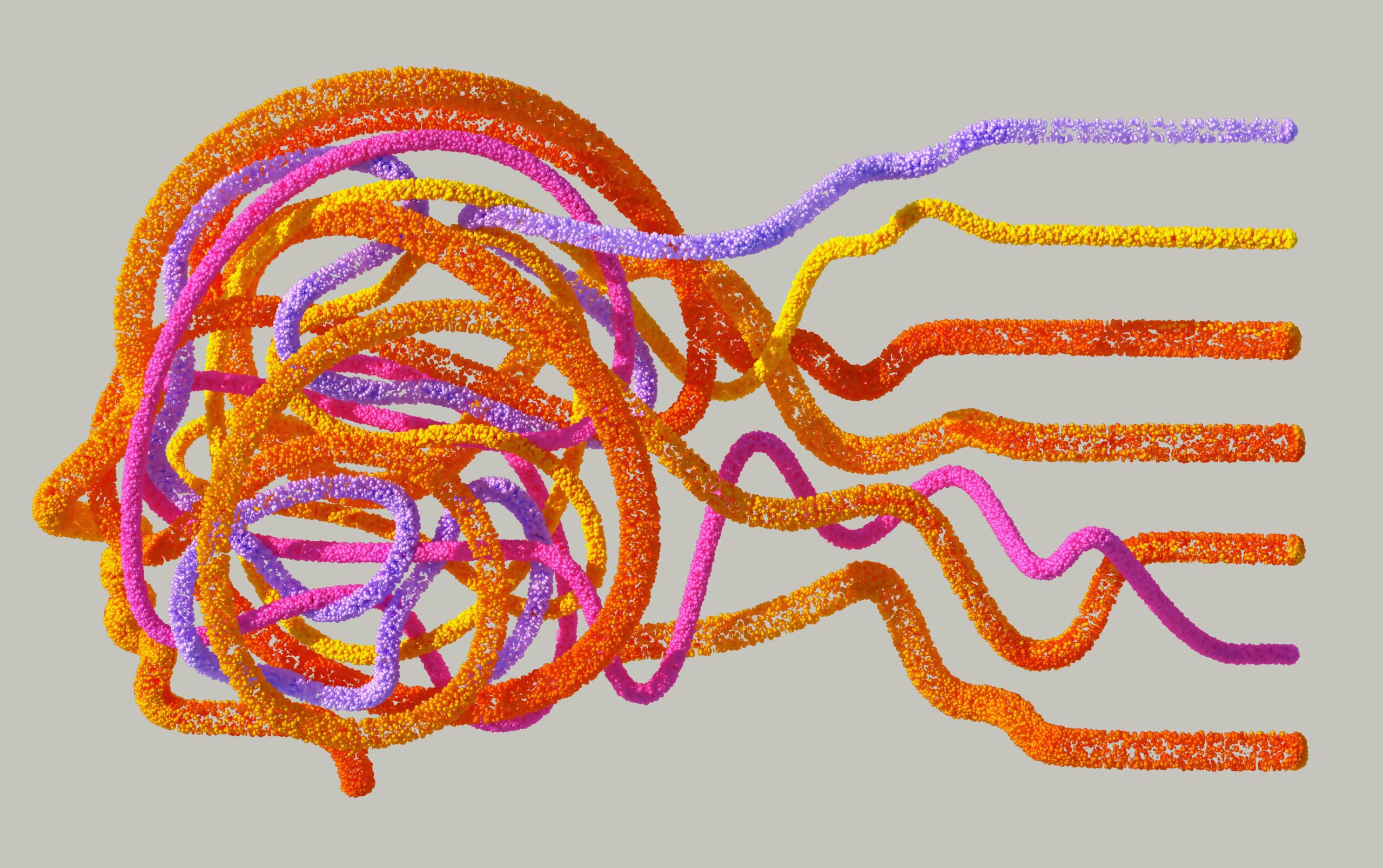Life throws challenges at us every single day, and how we respond emotionally determines our quality of life. Mastering your emotions isn’t about suppressing feelings—it’s about understanding, managing, and channeling them constructively to build a resilient, fulfilling existence.
Emotional resilience is the cornerstone of mental well-being and personal success. When you develop the ability to navigate life’s ups and downs with grace and strength, you unlock a version of yourself capable of handling anything. This comprehensive guide will walk you through proven strategies to master your emotions and cultivate unshakable resilience.
🧠 Understanding the Foundation of Emotional Mastery
Before you can master your emotions, you must first understand what emotions truly are. Emotions are complex psychological states involving physiological responses, subjective experiences, and behavioral expressions. They serve as messengers, providing valuable information about our environment and internal state.
The key to emotional mastery lies in recognizing that emotions themselves aren’t the problem—it’s our relationship with them that matters. When we resist, suppress, or overidentify with our emotions, we create suffering. When we acknowledge, accept, and work with them intelligently, we gain power.
Research in neuroscience reveals that emotional regulation involves multiple brain regions, including the prefrontal cortex, amygdala, and hippocampus. By understanding this neural architecture, we can implement strategies that leverage our brain’s natural plasticity to strengthen emotional control over time.
The Science Behind Emotional Resilience
Resilience isn’t an innate trait you’re either born with or without—it’s a skill set you can develop through consistent practice. Studies from positive psychology demonstrate that resilient individuals share common characteristics: optimism, strong social connections, purposeful living, and effective coping mechanisms.
The concept of neuroplasticity confirms that our brains can rewire themselves based on repeated experiences and thoughts. This means that by consistently practicing resilience-building behaviors, you’re literally reshaping your brain’s structure to respond more adaptively to stress and adversity.
💪 Building Your Emotional Awareness Toolkit
The journey to emotional mastery begins with awareness. You cannot change what you don’t acknowledge. Developing emotional awareness means creating space between stimulus and response, allowing you to choose your reactions rather than being controlled by automatic patterns.
Practicing Mindful Observation
Mindfulness meditation has emerged as one of the most powerful tools for emotional regulation. By training yourself to observe thoughts and feelings without judgment, you develop the capacity to witness your emotional landscape without being swept away by it.
Start with just five minutes daily. Sit comfortably, focus on your breath, and when emotions arise, label them mentally: “anxiety,” “excitement,” “frustration.” This simple act of labeling activates the prefrontal cortex, reducing the amygdala’s emotional reactivity—a phenomenon neuroscientists call “affect labeling.”
Meditation apps can provide structured guidance for beginners. Consider using dedicated mindfulness applications that offer guided sessions specifically designed for emotional regulation and resilience building.
Journaling for Emotional Clarity
Expressive writing is a research-backed method for processing emotions and building resilience. When you write about your experiences, particularly challenging ones, you engage different brain regions that help integrate emotional experiences into a coherent narrative.
Try these journaling prompts to enhance emotional awareness:
- What emotion am I feeling right now, and where do I feel it in my body?
- What triggered this emotion, and what story am I telling myself about it?
- How might I view this situation differently?
- What action, if any, would be most helpful right now?
- What am I grateful for despite this challenge?
🎯 Strategies to Master Your Emotional Responses
Once you’ve developed awareness, the next step is learning practical strategies to manage emotional responses effectively. These techniques help you move from reactive to responsive, from victim to creator of your experience.
The STOP Technique for Emotional Regulation
When strong emotions threaten to overwhelm you, use the STOP acronym as your emergency brake:
- Stop: Pause whatever you’re doing and thinking
- Take a breath: Focus on several deep, slow breaths
- Observe: Notice what’s happening in your body, mind, and environment
- Proceed: Continue with intention and awareness
This simple intervention creates crucial space between trigger and response, allowing your rational mind to engage before your emotional brain takes full control.
Cognitive Reframing for Perspective Shifts
Your thoughts about situations create your emotional responses more than the situations themselves. Cognitive reframing involves identifying unhelpful thought patterns and consciously replacing them with more balanced, constructive perspectives.
Common cognitive distortions that undermine emotional resilience include catastrophizing, black-and-white thinking, personalization, and mind reading. By catching these patterns and questioning their validity, you reduce unnecessary emotional suffering.
Ask yourself: Is this thought based on facts or assumptions? What evidence contradicts this thought? What would I tell a friend in this situation? How will this matter in five years?
🌱 Cultivating Long-Term Resilience Through Daily Practices
Resilience isn’t built overnight—it’s the cumulative result of consistent daily practices that strengthen your emotional immune system. Think of these practices as deposits into your resilience bank account.
Physical Foundation: The Body-Mind Connection
Your physical state profoundly influences your emotional state. Regular exercise releases endorphins, reduces stress hormones, and improves mood regulation. Research shows that just 30 minutes of moderate exercise can significantly improve emotional well-being.
Sleep is equally critical. Sleep deprivation impairs the prefrontal cortex while heightening amygdala reactivity, making emotional regulation significantly harder. Prioritize 7-9 hours of quality sleep to maintain optimal emotional functioning.
Nutrition also plays a role. A diet rich in omega-3 fatty acids, complex carbohydrates, and micronutrients supports neurotransmitter production and brain health, directly impacting mood and resilience.
Social Connections: Your Resilience Network
Humans are inherently social creatures, and strong relationships serve as buffers against stress and adversity. Building and maintaining quality connections should be a top priority in your resilience strategy.
Invest time in relationships that uplift you. Practice vulnerability by sharing your struggles with trusted friends or family. Join communities aligned with your values and interests. Consider working with a therapist or coach when facing particularly challenging periods.
Research consistently shows that people with strong social support networks recover more quickly from setbacks and experience better mental health outcomes across the lifespan.
🔥 Transforming Adversity into Growth
The most resilient people don’t just survive difficult experiences—they find ways to grow through them. This concept, known as post-traumatic growth, demonstrates that adversity can catalyze positive transformation when approached with the right mindset.
Embracing the Growth Mindset
Carol Dweck’s research on mindset reveals that believing your abilities can develop through effort (growth mindset) versus being fixed traits (fixed mindset) dramatically impacts how you respond to challenges.
People with growth mindsets view failures as learning opportunities, embrace challenges as chances to improve, and persist longer in the face of setbacks. Cultivate this perspective by focusing on effort and progress rather than outcomes, and treating setbacks as valuable feedback rather than evidence of inadequacy.
Finding Meaning in Difficulty
Viktor Frankl’s work demonstrates that finding meaning in suffering is what ultimately allows us to transcend it. When you can identify purpose within your struggles, they become more bearable and potentially transformative.
Ask yourself: What is this experience teaching me? How might this challenge be preparing me for something better? What strengths am I discovering in myself? How can I use this experience to help others in the future?
🛠️ Advanced Techniques for Emotional Mastery
As you progress in your emotional mastery journey, these advanced techniques can deepen your practice and strengthen your resilience further.
Emotional Exposure and Acceptance
Rather than avoiding uncomfortable emotions, deliberately expose yourself to them in controlled ways. This counterintuitive approach, rooted in acceptance and commitment therapy, reduces the power emotions hold over you.
When you feel anxiety, sadness, or anger, instead of distracting yourself, sit with the feeling. Breathe into it. Get curious about its texture, location, and intensity. Notice how it changes over time. This practice demonstrates that emotions are temporary waves that pass rather than permanent states to be feared.
Values-Based Living
Resilience becomes easier when your actions align with your deepest values. Clarifying what truly matters to you provides direction during uncertain times and motivation to persist through difficulties.
Identify your core values across life domains: relationships, work, health, personal growth, and contribution. Then evaluate whether your daily choices reflect these values. When facing difficult decisions, use your values as a compass to guide you toward choices you won’t regret.
📊 Tracking Your Progress and Staying Accountable
Measurement and accountability significantly increase the likelihood of sustained behavior change. Consider implementing these tracking methods to maintain momentum in your emotional mastery journey.
| Method | Benefit | Frequency |
|---|---|---|
| Mood tracking app | Identifies patterns and triggers | Daily |
| Weekly reflection journal | Consolidates learning and progress | Weekly |
| Accountability partner | Provides support and motivation | Bi-weekly |
| Professional check-ins | Expert guidance and course correction | Monthly |
Mood tracking applications can help you identify patterns in your emotional life that might not be obvious otherwise. By logging your mood, activities, sleep, and other factors, you can discover what consistently improves or undermines your emotional state.
🌟 Creating Your Personalized Resilience Plan
Generic advice only takes you so far. The most effective resilience strategy is one tailored to your unique personality, circumstances, and challenges. Use the following framework to create your customized plan.
Assess Your Current State
Begin by honestly evaluating your current emotional regulation skills and resilience levels. What situations consistently trigger strong reactions? What coping mechanisms do you currently use, and how effective are they? What areas of your life feel most stable versus most vulnerable?
Set Specific, Measurable Goals
Rather than vague intentions like “be more resilient,” establish concrete goals: “Practice mindfulness meditation for 10 minutes daily,” “Exercise four times weekly,” “Challenge three negative thoughts daily using cognitive reframing,” or “Connect meaningfully with one friend each week.”
Start Small and Build Gradually
Sustainable change happens through small, consistent actions rather than dramatic overhauls. Choose one or two practices to begin with, establish them as habits over 30 days, then add additional practices incrementally.
Anticipate Obstacles and Plan Solutions
What might prevent you from following through on your resilience practices? Time constraints? Motivation fluctuations? Skepticism? For each potential obstacle, create a specific contingency plan to overcome it.
🎭 Embracing Your Emotional Complexity
True emotional mastery isn’t about achieving a constant state of calm or happiness—it’s about developing the flexibility to experience the full spectrum of human emotions while maintaining your equilibrium and sense of purpose.
The strongest people aren’t those who never feel fear, sadness, or anger. They’re the ones who feel these emotions fully, learn from them, and continue moving forward anyway. They understand that discomfort is often the price of growth, and temporary pain is preferable to permanent regret.
Your emotions make you human. Your resilience makes you unstoppable. By implementing these proven strategies consistently, you’re not just surviving life’s challenges—you’re building the capacity to thrive regardless of circumstances.

💫 Your Transformation Starts Now
The journey to emotional mastery and unshakable resilience is both challenging and deeply rewarding. Every strategy you implement, every moment of awareness you cultivate, and every difficulty you navigate skillfully strengthens your emotional immune system.
Remember that setbacks are inevitable and don’t represent failure—they’re opportunities to practice the very resilience you’re building. Be patient with yourself. Celebrate small victories. Seek support when needed. And most importantly, stay committed to the process even when results aren’t immediately visible.
The person you’re becoming through this work—emotionally intelligent, resilient, and capable of maintaining inner peace amid outer chaos—is worth every ounce of effort. Your future self will thank you for the investment you’re making today in your emotional well-being and resilience.
Start with one strategy from this guide today. Just one. Then tomorrow, practice it again. Small, consistent actions compound into remarkable transformations over time. Your journey to a stronger, happier, more resilient you begins with this single decision to take control of your emotional life and build the inner strength that no external circumstance can shake.
Toni Santos is a cognitive storyteller and cultural researcher dedicated to exploring how memory, ritual, and neural imagination shape human experience. Through the lens of neuroscience and symbolic history, Toni investigates how thought patterns, ancestral practices, and sensory knowledge reveal the mind’s creative evolution. Fascinated by the parallels between ancient rituals and modern neural science, Toni’s work bridges data and myth, exploring how the human brain encodes meaning, emotion, and transformation. His approach connects cognitive research with philosophy, anthropology, and narrative art. Combining neuroaesthetics, ethical reflection, and cultural storytelling, he studies how creativity and cognition intertwine — and how science and spirituality often meet within the same human impulse to understand and transcend. His work is a tribute to: The intricate relationship between consciousness and culture The dialogue between ancient wisdom and neural science The enduring pursuit of meaning within the human mind Whether you are drawn to neuroscience, philosophy, or the poetic architecture of thought, Toni invites you to explore the landscapes of the mind — where knowledge, memory, and imagination converge.




